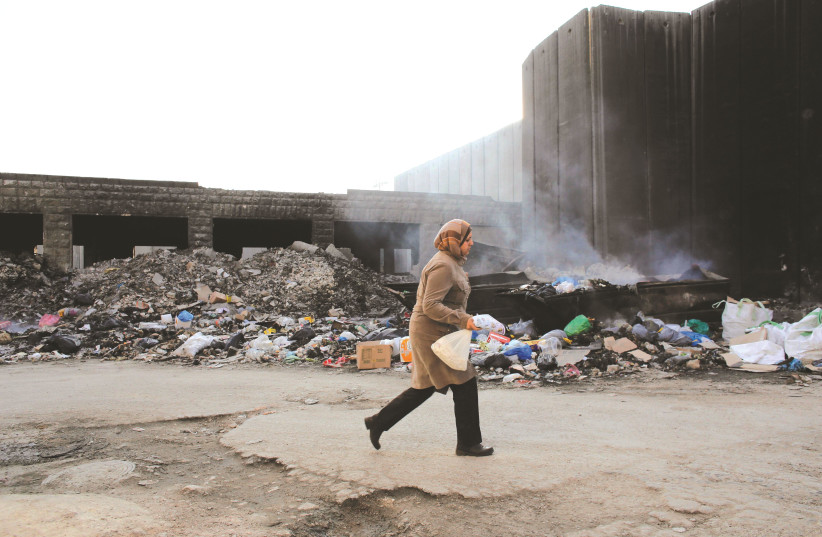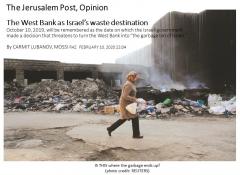The West Bank as Israel’s waste destination
October 10, 2019, will be remembered as the date on which the Israeli government made a decision that threatens to turn the West Bank into “the garbage bin of Israel.”

Although operating as an interim government while the political system is on hold in anticipation of a third election within a few short months, the Environmental Protection and the Finance ministries took advantage of the High Holidays lull to publish the preliminary phase of an international tender for the planning, financing, construction and operation of Israel’s first waste-to-energy plant. What may at first glance seem like a positive development is actually a matter of great concern – as the facility is going to be built in the West Bank.
The facility is going to be built near the Good Samaritan site in the jurisdiction of Ma’aleh Adumim. The plan for the construction of the waste treatment and incineration facility is part of Israel’s Waste Management Strategic Plan for 2030, which was approved in 2018. In this regard, it is noteworthy that the formulation of Israel’s waste treatment strategy for 2030 was funded by the EU and supported via twinning projects with several European countries, including Germany, Austria and the United Kingdom (Northern Ireland). Despite the Israeli government’s announcement that the Environmental Protection Ministry will finance the construction of the waste facility to the tune of NIS 2.8 billion, one cannot ignore the linkage between the EU funding of the strategy formulation and the implementation of the plan, as the latter is a direct outcome of the former. It is also worthy to note that European companies will not be able to compete in the international tender because of the facility’s location in the occupied West Bank.
Behind the new ambitious targets of Israel’s waste strategy lie the failures of the Environmental Protection Ministry. Israel is ranked at the bottom of national municipal waste recycling rates internationally compared to developed countries. Most of the municipal waste in Israel is currently transferred to landfills (80%).
Therefore, in addition to the effort required to reduce consumption and increase waste separation at the point of origin, we support the solution of converting organic waste into energy through environmentally monitored processes. We take issue, however, with the declared site, which is an area that is weak in terms of environmental governance and civil society ability to act and is protected by the Basel Convention which was formulated 30 years ago exactly for this purpose: to control the trans-boundary transfer of waste. The advancement of the current plan, which disregards the Basel Convention, constitutes the realization of a policy of environmental injustice.
We, the authors of this article, are well aware of the geopolitical situation in our region. Against that background, we propose that the next Israeli government embrace a policy of economic cooperation and examine the possibility of establishing a waste-to-energy facility as a joint Israeli-Palestinian enterprise in cooperation with the EU or any other international party.


